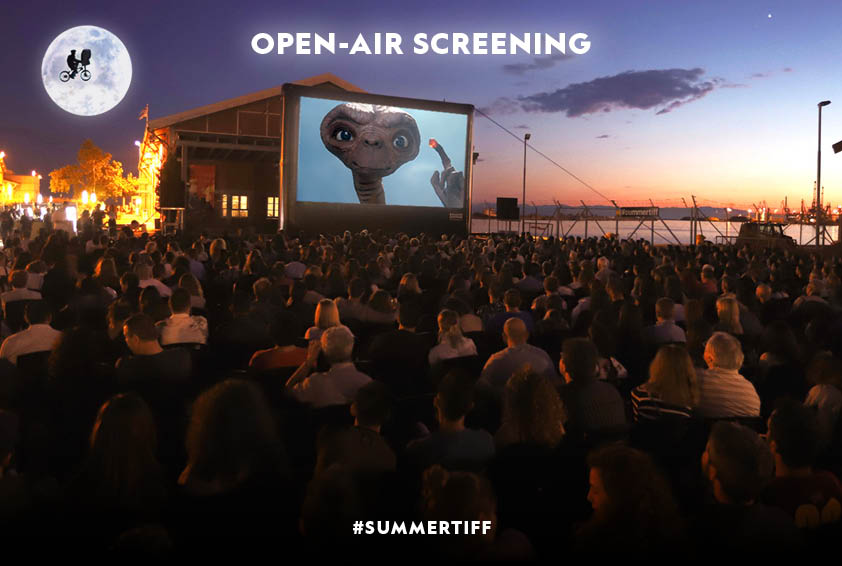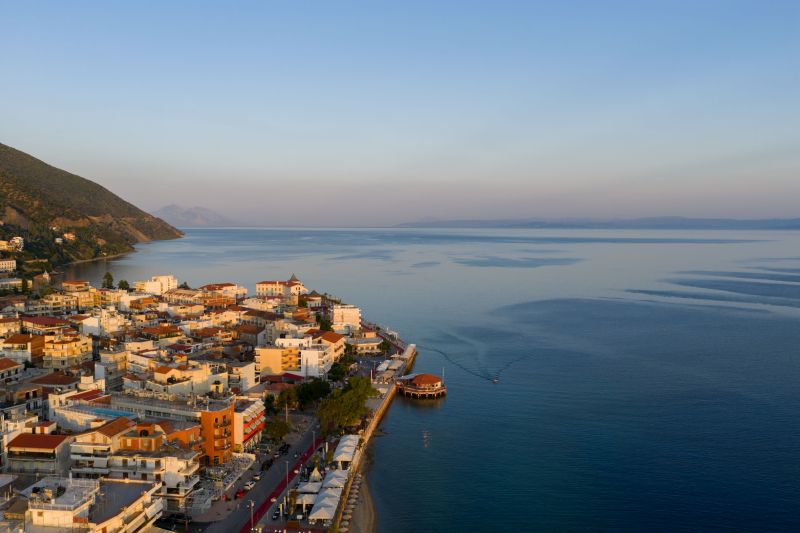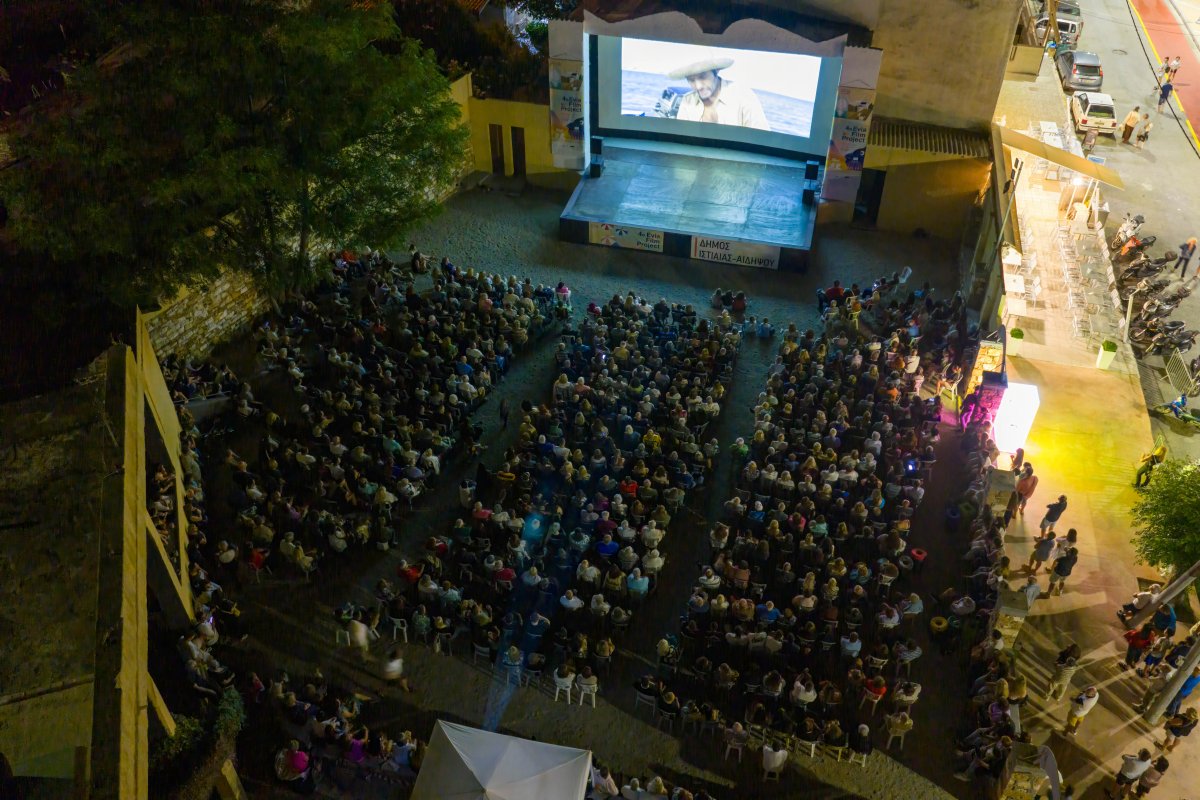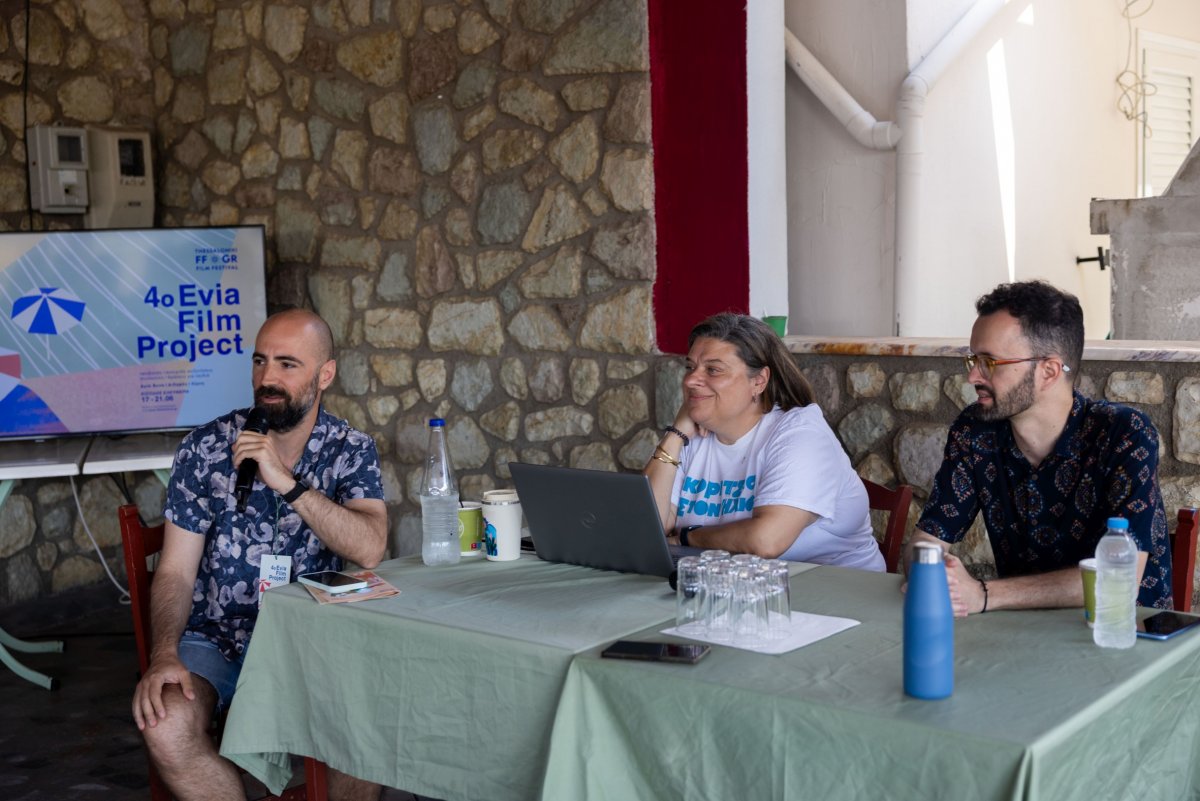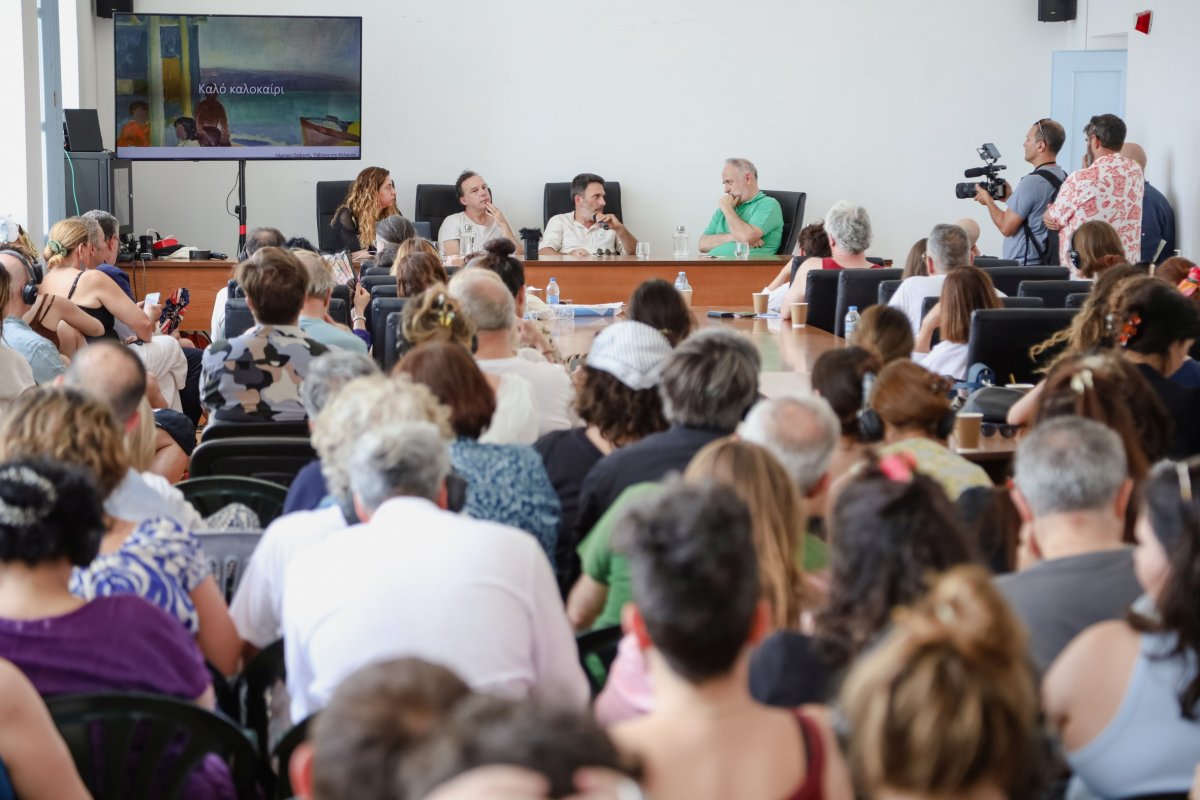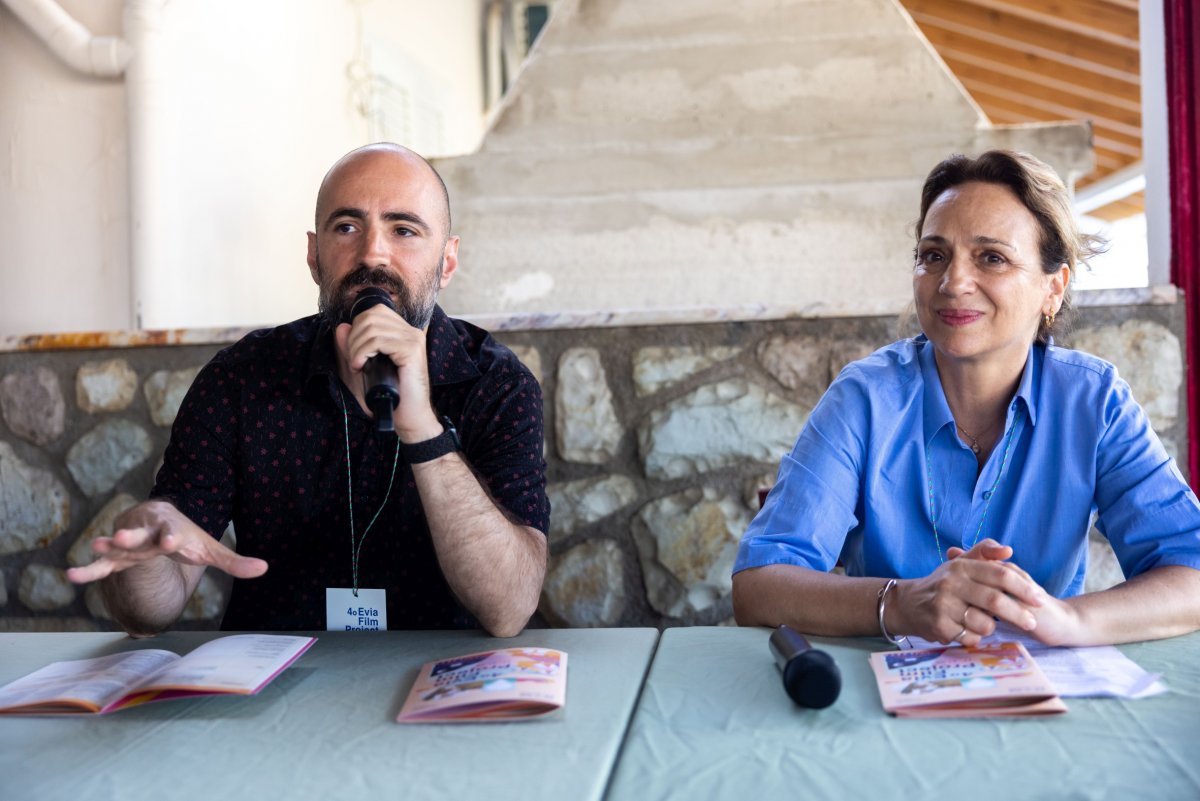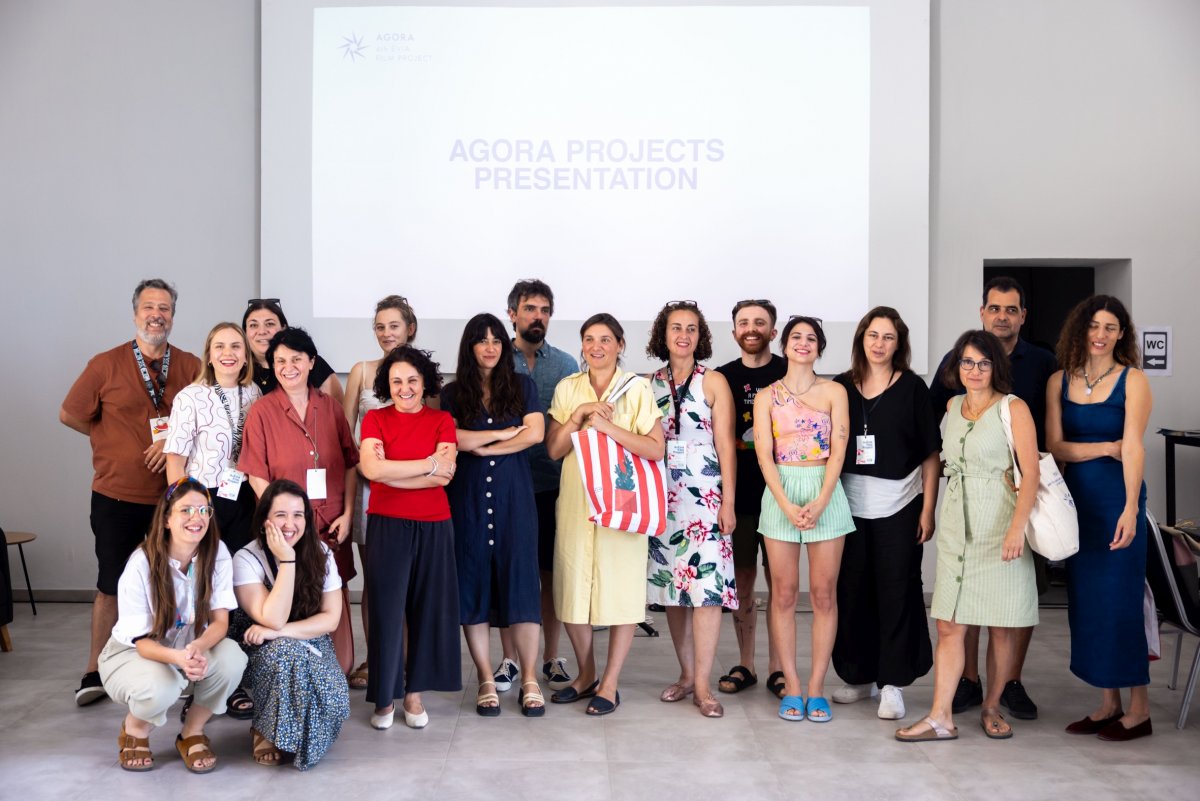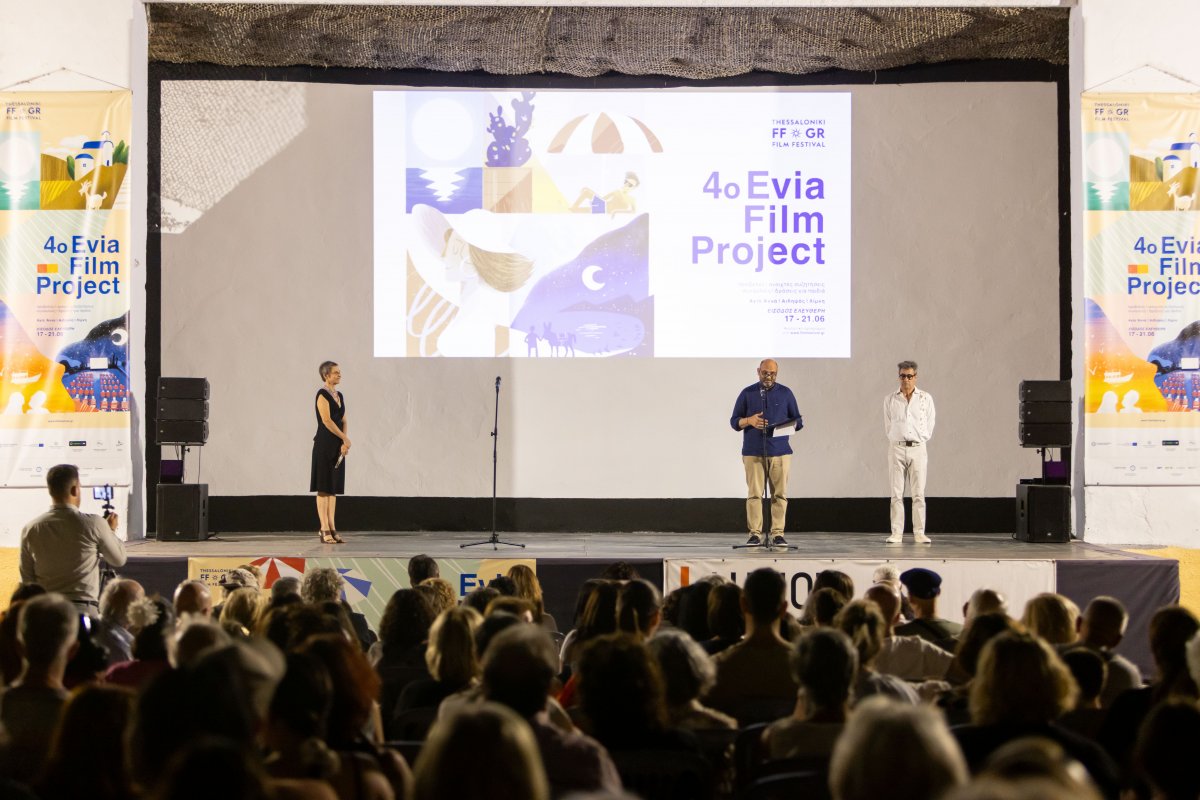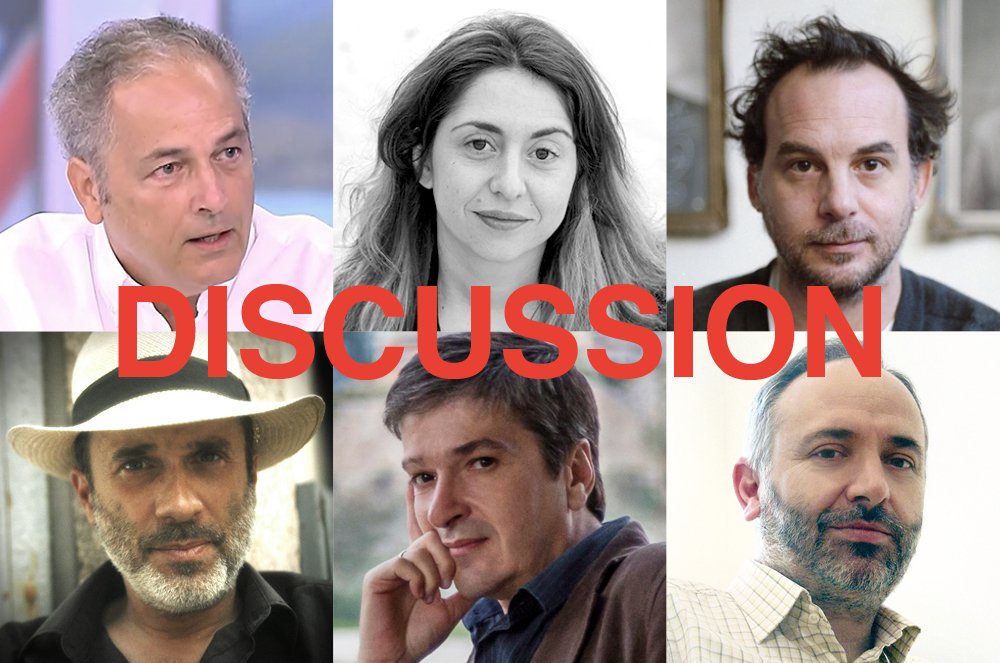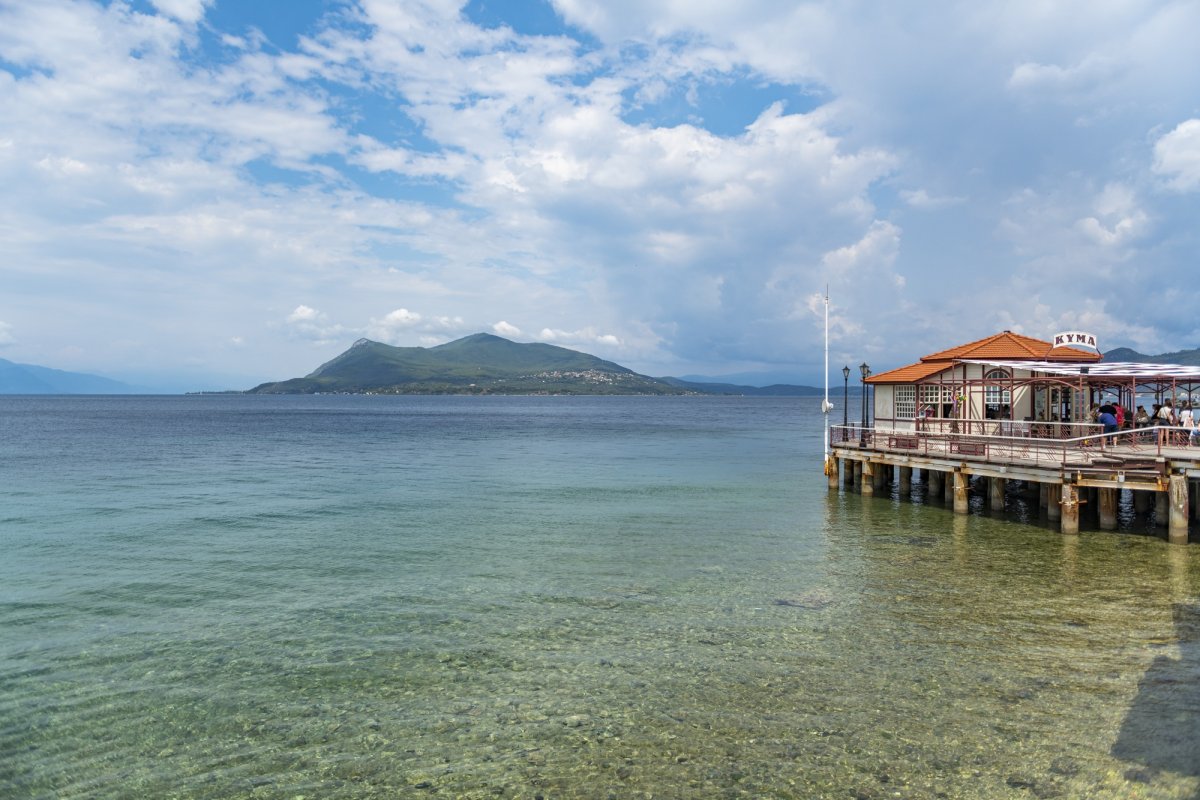November 6-15, 2015
PRESS CONFERENCE MIRCEA DANIELUC
Romanian filmmaker Mircea Danieluc held a press conference on Monday, November 9, 2015, in the framework of the 56th Thessaloniki International Film Festival. The 56th edition of TIFF is hosting a tribute to his work in the “Balkan Survey” section.
Dimitri Eipides welcomed Mr. Danieluc and noted that “Mircea Danieluc is a bold artist whose work has had a deep influence on the Romanian New Wave”. Mr. Eipides also remarked that Danieluc’s films reflect all Romanians, adding that “the sharp eye of the director captures the social and political changes that occurred in the country and are an important discovery to us all”.
Dimitris Kerkinos, head of the Balkan Survey, moderator of the press conference, described Mircea Danieluc as a pioneering director and stressed that an extensive tribute to his work is organized outside Romania for the first time.
The director thanked the TIFF for inviting him, commenting: “I'm not sure I deserve such recognition”. Replying to what it meant to make films in the era of Ceausescu, Mr. Danieluc said: “The situation was the same as in any dictatorship. Such regimes give money to film production more than the democratic ones, exploiting cinema as a means of propaganda. It was a particularly difficult time for filmmakers, who were under heavy pressure and took risks”. He explained that for a film to be classified as suitable for the audiences, first it had to go through censorship in the initial stage of the script, but even more so when it was completed. However, as he added, “the state provided financing and that was an advantage”.
In 1981, Mircea Danieluc wrote and directed The Cruise, a political satire that skewered the communist regime, in which the central characters were actually Nikolai and Elena Ceausescu, of course without naming them. As the director said, the metaphor was a tool: “For a script to get approval it should have been considered ‘clear’ regarding propaganda, therefore changes were necessary in order to continue filming. For this reason, I started with a script that did not reveal anything at all”.
Each of Daneliuc’s films seems to have a completely different style from the previous one, although he claims that style does not determine everything. “The style is determined by the project itself, and that is why my films appear to have different styles,” he remarked. For instance, making a reference to his film Microphone Test, the director explained that he embraced cinema verite and that the sound recording techniques used may now seem outdated, however, “at the time they were quite satisfactory. To record sound, we put microphones in the actor’s hair and the vehicles passing by,” as he said.
Regarding his role as both director and actor, Mircea Danieluc pointed out that it is not easy for a director to play a role in his own films, because as he noted “this overwhelmingly increases the workload, even when it was not yet possible to simultaneously visualize the different stages of filming”. He also added: “However, cinema verite forces you to stay away from the actors, without being able to intervene as a director and highlight details at the time of shooting, such as a passerby or a bus passing by. Someone was needed to solve problems on set and I probably was the best to do it. So, I decided to interpret a role standing next to the actors, in order to resolve unexpected situations during filming”.
The director was asked whether his approach to the art of cinema was influenced by the fall of the communist regime. “We thought that the fall of the regime was the face of freedom; that we would eventually be free, but we were not. The regime collapsed, but nevertheless I had to come up against the same people. It was a good thing, at first. The state was paying for everything and we were free to do what we wanted. This lasted 4-5 years. From then on, I realized that the previously active cameramen and producers could as always get money from the state by following the pattern of the Ceausescu regime,” Mr. Daneliouc noted. As for him, during the period of the democratic regime, his film The Foreign Legion (2008) “remained unreleased for one year and I was pushed aside,” as did his next film Marilena (2008).
According to Mr. Daneliouc, Romania joining the EU has not particularly benefited the Romanian cinema. “There were other obligations and priorities. It was very difficult to have access to European funds. The distribution involved countries with well-known history in film production. Romania, Bulgaria and Poland were new countries in this framework, we were still in the waiting room. The situation has improved, but I am not fully convinced that it is better for our cinema, now that we are in the EU. After the revolution, my films were subsidized by the state. I did not receive any European funds,” he noted.
Replying to the question “can subsidized art be confrontational?” Mr. Daneliouc noted: “Subsidized art can bear fruit, if done in a country which is interested in culture. At the time of Ceausescu, remarkable films were made. After that, freedom seems to have a very specific sense. There isn’t the same pressure for a film to get approved or the consequences thereof. This may be a better time, in this aspect, but today's films are simplified, they just tell a story”.



